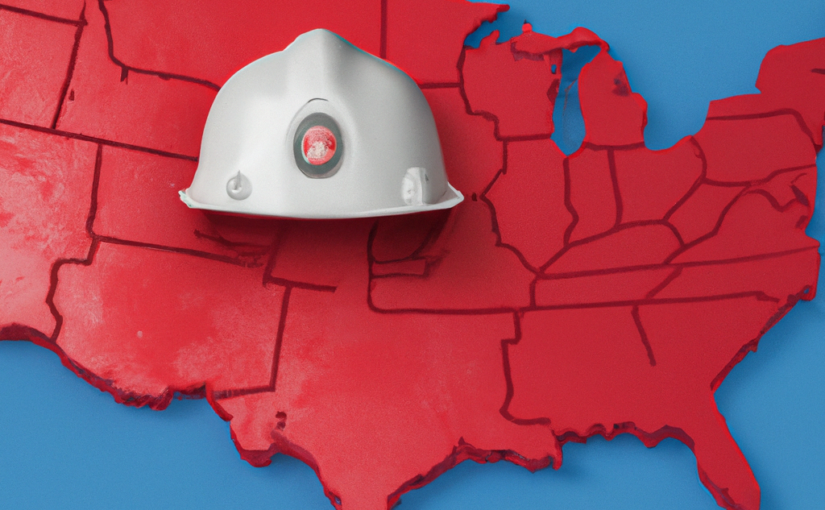Last Updated on May 24, 2023
If you’re a construction worker who has been injured on the job, workers’ comp benefits can provide critical support for your recovery. However, it’s important to understand your rights and eligibility for these benefits, and to take action if your claim is denied. As a workers’ comp lawyer, I’m here to help. Contact me at 844–682‑0999 for a free consultation to discuss your case and explore your options.
Workers’ Comp Benefits: What Construction Workers Need to Know
Construction workers face numerous hazards on the job site every day, from slips, trips, and falls to exposure to hazardous materials and heavy machinery. In the event of an accident, workers’ compensation benefits can provide critical financial support to cover medical expenses and lost wages.
As a workers’ comp lawyer, I’ve seen firsthand how important it is for construction workers to understand their rights and eligibility for workers’ comp benefits. In this article, I’ll provide an overview of workers’ comp benefits for construction workers, including what they cover, how to file a claim, and what to do if your claim is denied.
Understanding Workers’ Comp Benefits in Construction
Workers’ compensation is a form of insurance that provides benefits to employees who are injured on the job, regardless of fault. In construction, where the risk of injury is high, workers’ comp benefits are especially important. These benefits can cover a range of expenses, including medical bills, lost wages, and vocational rehabilitation.
One key aspect of workers’ comp for construction workers is that it covers both accidents and occupational illnesses. For example, if a construction worker develops a respiratory condition from exposure to asbestos, they may be eligible for workers’ comp benefits. Additionally, workers’ comp benefits may be available in cases of repetitive strain injuries or hearing loss caused by prolonged exposure to loud noises.
To be eligible for workers’ comp benefits, construction workers generally need to meet three criteria:
- They must be an employee (not an independent contractor)
- The injury or illness must be work-related
- The injury or illness must have occurred within the scope of employment
What Workers’ Comp Benefits Cover
Workers’ comp benefits can cover a range of expenses related to a work-related injury or illness. Here are some of the most common benefits that may be available to construction workers:
- Medical expenses: This can include doctor visits, hospitalization, surgery, prescription medications, and other necessary medical treatments.
- Lost wages: If a construction worker is unable to work due to their injury or illness, workers’ comp benefits can provide a percentage of their lost wages. The percentage varies by state and may be subject to a weekly maximum.
- Vocational rehabilitation: In cases where an injury or illness prevents a construction worker from returning to their previous job, workers’ comp benefits may cover vocational rehabilitation to help them train for a new career.
- Disability benefits: If a construction worker’s injury or illness results in a permanent disability, workers’ comp benefits may provide ongoing support. The amount of disability benefits depends on the severity of the disability and the worker’s average weekly wage.
- Death benefits: In tragic cases where a construction worker dies as a result of a work-related injury or illness, workers’ comp benefits may provide support to their dependents, including funeral expenses and ongoing financial support.
Filing a Workers’ Comp Claim
If you’re a construction worker who has been injured on the job, it’s important to act quickly to file a workers’ comp claim. In most states, there is a time limit for filing a claim, so it’s important not to delay. Here are the basic steps for filing a workers’ comp claim:
- Notify your employer: As soon as possible after your injury or illness, notify your employer in writing. Be sure to keep a copy of this notification for your records.
- Seek medical attention: Get medical treatment for your injury or illness, and be sure to tell your healthcare provider that it’s work-related.
- File a claim: Fill out the necessary paperwork to file a workers’ comp claim with your state’s workers’ compensation agency. You may need to provide medical records, proof of lost wages, and other documentation.
- Wait for a decision: The workers’ comp agency will review your claim and make a decision on whether to approve or deny it. If approved, you’ll receive benefits based on the type and severity of your injury or illness.
What to Do If Your Claim Is Denied
Unfortunately, not all workers’ comp claims are approved. If your claim is denied, it’s important to take action to protect your rights. Here are some steps you can take if your claim is denied:
- Understand the reason for denial: The workers’ comp agency should provide a reason for the denial of your claim. Make sure you understand this reason and gather any additional information that might support your claim.
- Appeal the decision: You have the right to appeal the decision to deny your claim. This typically involves filing a formal appeal with the workers’ comp agency and presenting evidence to support your claim.
- Get legal help: If your claim is denied, it may be helpful to seek legal advice from a workers’ comp lawyer. A lawyer can help you understand your rights and options, and may be able to represent you in court if necessary.
Top 5 Related Topics:
- Occupational Safety & Health Administration (OSHA) regulations for the construction industry
- Construction site hazards and safety measures
- Types of workplace injuries and illnesses in construction
- Workers’ comp benefits for other industries
- Disability benefits and Social Security Disability Insurance (SSDI)
More Questions ?
- Workers’ comp benefits for construction workers
- Filing a workers’ comp claim in construction
- Denied workers’ comp claims for construction workers
- Occupational illnesses in the construction industry
- Disability benefits for construction workers

